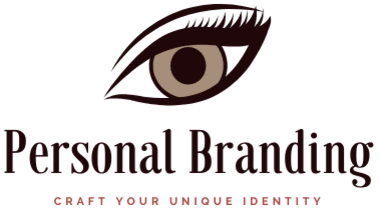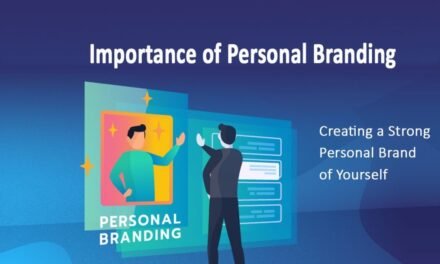Personal Branding in the Digital Age: Crafting Your Identity in a Connected World
In today’s interconnected world, personal branding is no longer just for celebrities or executives. It has become a vital aspect of professional life for anyone looking to stand out, build credibility, and create lasting impressions. Whether you’re an entrepreneur, freelancer, employee, or content creator, managing your personal brand online can determine your success.
The digital age has radically transformed how we communicate, share information, and showcase our skills. Social media platforms, websites, blogs, and online portfolios have made it easier than ever to build and maintain a personal brand. But with this opportunity comes the challenge of standing out in an overcrowded digital space. Here’s how to navigate personal branding in the digital era and establish a memorable and authentic identity.
What Is Personal Branding?
Personal branding is the process of developing and promoting a public persona that reflects your values, skills, experiences, and unique qualities. It’s about creating an image of yourself that resonates with your target audience. A strong personal brand helps you differentiate yourself from competitors, establish trust with clients and employers, and open doors to new opportunities.
In the past, personal branding was largely shaped by face-to-face interactions, word of mouth, and traditional media. Today, it is heavily influenced by the digital presence you cultivate. From the tone of your social media posts to the design of your website, every aspect of your online presence contributes to how people perceive you.
Why Is Personal Branding Important in the Digital Age?
- Increased Visibility: With millions of people online, the digital landscape offers a vast opportunity to get noticed. Personal branding allows you to make your presence felt in the noise, ensuring that you stand out from the crowd.
- Career Advancement: A strong personal brand can lead to job offers, promotions, collaborations, and business opportunities. Employers and clients often look for candidates with a clear and compelling personal brand that aligns with their values.
- Building Trust: Trust is essential for building relationships, whether personal or professional. A consistent and authentic personal brand fosters trust with your audience, making them more likely to engage with your content or hire you.
- Networking Opportunities: A well-defined personal brand attracts like-minded people, making it easier to connect with professionals, mentors, and influencers in your industry. These connections can lead to valuable collaborations and partnerships.
How to Build Your Personal Brand in the Digital Age
1. Define Your Unique Value Proposition
To build a strong personal brand, start by understanding what makes you unique. What skills, experiences, or perspectives set you apart from others in your field? Consider your expertise, passions, and the problems you solve for your audience.
Your unique value proposition (UVP) should be clear, concise, and reflective of your authentic self. It’s the foundation of your personal brand and guides the content you create, the way you communicate, and how you present yourself online.
2. Create a Consistent Online Presence
Consistency is key to building recognition and credibility. Ensure your personal brand is represented consistently across all platforms, from your website to your social media accounts. Your profile picture, bio, tone of voice, and design should align with your UVP and reflect the image you want to project.
For example, if you are a digital marketing expert, ensure that your social media accounts feature relevant content, case studies, and insights that reflect your knowledge in the field. A professional website that showcases your portfolio, testimonials, and achievements is also essential in building trust with potential clients and employers.
3. Leverage Social Media Platforms
Social media is one of the most powerful tools for personal branding. Platforms like LinkedIn, Twitter, Instagram, and TikTok provide opportunities to showcase your personality, expertise, and opinions. Each platform has its unique audience and style, so it’s important to tailor your content accordingly.
- LinkedIn is a great place to share professional insights, achievements, and network with industry peers.
- Instagram allows for a more visual approach, where you can share behind-the-scenes glimpses of your life, creative work, and personal passions.
- Twitter is ideal for sharing quick thoughts, engaging with others in real-time, and staying updated with industry trends.
- TikTok is perfect for showcasing your personality, creativity, and thought leadership in a more engaging, short-form format.
Consistency in how you engage on these platforms helps reinforce your personal brand and build relationships with your followers.
4. Create and Share High-Quality Content
Content creation is one of the most effective ways to establish authority in your field. Whether it’s writing blog posts, making videos, recording podcasts, or sharing industry insights on social media, content helps you demonstrate your expertise and connect with your audience on a deeper level.
Focus on creating content that provides value to your audience, answers their questions, or solves their problems. This positions you as a thought leader and builds trust over time. Use your content to tell your personal story, share lessons learned, and offer actionable advice.
5. Be Authentic and Transparent
In the digital age, people value authenticity more than ever. Audiences can spot disingenuous behavior from a mile away, and they are more likely to connect with a brand that feels real and relatable. Don’t be afraid to show your true self, share your struggles, and highlight your successes.
Authenticity doesn’t mean sharing every aspect of your life, but it does mean being transparent about your values, goals, and the work you do. Whether you’re speaking on social media or writing a blog post, let your personality shine through.
6. Engage with Your Audience
Building a personal brand isn’t a one-way street. It’s about fostering meaningful relationships with your audience. Engage with your followers by responding to comments, starting conversations, and participating in discussions in your industry. This helps you build a community of supporters who feel connected to you and your brand.
Networking online is an essential part of personal branding, so take the time to connect with others in your industry and share valuable insights. Attend webinars, participate in forums, and collaborate with others to expand your reach.
7. Monitor Your Online Reputation
Your online reputation plays a significant role in your personal brand. Be proactive in managing your digital footprint by regularly checking what people are saying about you online. Google yourself periodically to see what comes up, and take action to correct any inaccurate or misleading information.
Use tools like Google Alerts or social listening tools to stay updated on mentions of your name or brand. If you find negative comments or reviews, address them promptly and professionally.
Conclusion
Personal branding in the digital age is about more than just building a strong online presence—it’s about creating an authentic, consistent, and meaningful identity that resonates with your audience. By defining your unique value, leveraging social media, creating high-quality content, and engaging with your community, you can establish a personal brand that opens doors to new opportunities and sets you apart in a crowded digital world.
In this age of connectivity, your personal brand is one of your most valuable assets. Cultivate it thoughtfully, and it will serve you well in both your personal and professional life.


